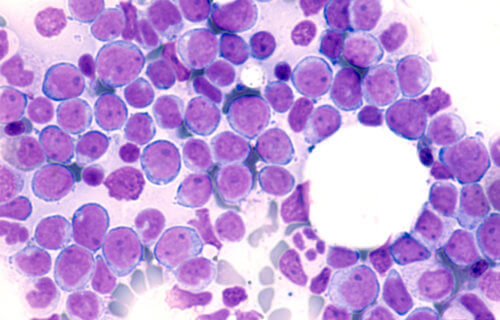COLUMBIA, Mo. — Viruses, bacteria, and even certain cancers can be tackled by the immune system, which is the body’s primary defense mechanism. However, some cancer cells are capable of disguising themselves to prevent being destroyed. Research conducted at the University of Missouri sheds light on a new method that may help the immune system recognize and kill cancer cells.
“Your body’s immune cells are constantly on patrol to identify and destroy foreign entities. Normal cells put up a ‘don’t-eat-me’ molecular flag that is recognized by immune cells, thereby preventing the destruction of normal tissues,” says Yves Chabu, an assistant professor in the university’s Division of Biological Sciences, in a statement. “However, some cancers have also developed the ability to mimic normal cells and produce this ‘don’t eat me’ signal. As a consequence, the immune system fails to recognize cancer as a defective tissue and leaves it alone, which is bad news for the patient.”
Chabu explains that cancer drugs, known as immunotherapies, block the evading signal of the cancer cells which allows them to be destroyed by the immune system. Although these drugs work for some cancer types, certain cancers like prostate cancer have the ability to overpower the immune system. With the help of a 50-year-old bacterial strain, researchers are hoping to override the powerful environment of the cancer cells.
“Cancers are different in one individual to the next, even when they affect the same tissue. These interpersonal differences contribute to whether or not a particular therapy will effectively kill the cancer and help the patient. The bacteria itself can be genetically modified to overcome patient-specific therapeutic limits,” says Chabu. “Imagine a patient whose cancer isn’t responding to traditional therapies and has no other treatment options. One can envision genetically modifying the bacteria such that it can unload therapeutics that specifically exploit that cancer’s unique vulnerabilities and kill it.”
Researchers at the University of Missouri and the Cancer Research Center revived a genetically distinct salmonella strain that had been kept at a certain temperature for over 50 years. Referred to as CRC2631, the bacteria was developed to target and destroy cancer cells. Scientists are now testing CRC2631 against more robust cancer cells such as those of the prostate.
“Because CRC2631 preferentially colonizes tumor cells, the effect is mainly localized to the tumor. The use of CRC2631 to design and deliver patient-tailored therapeutics foretells potential in precision medicine, or the ability to tailor a treatment to a specific patient,” said Chabu.
This study is published in Oncotarget.
